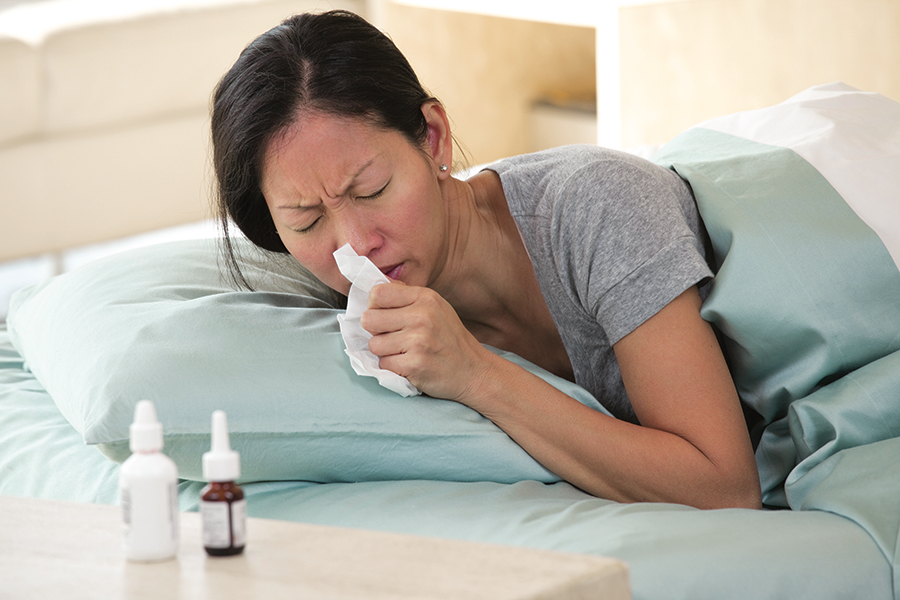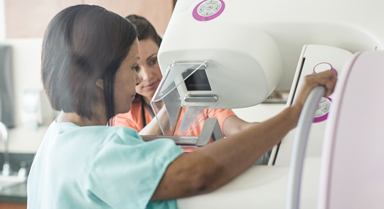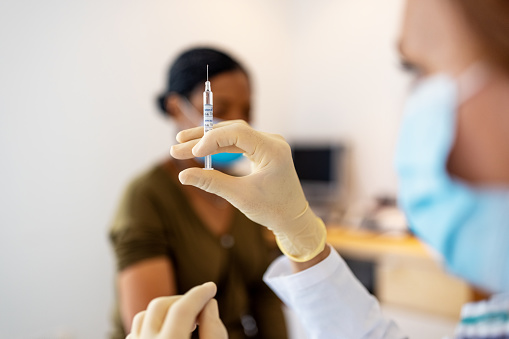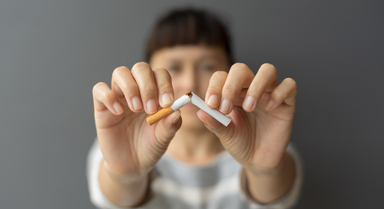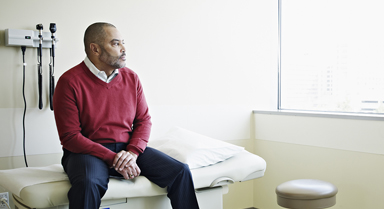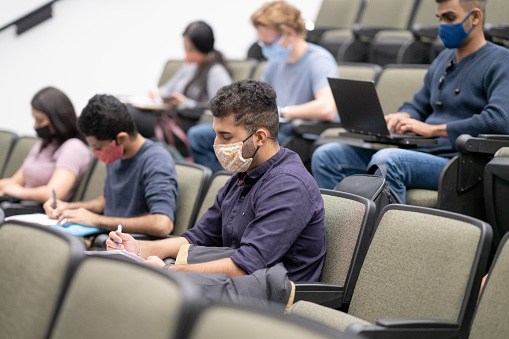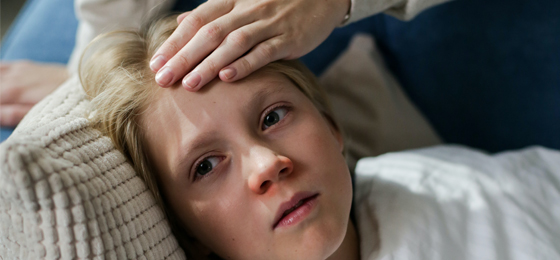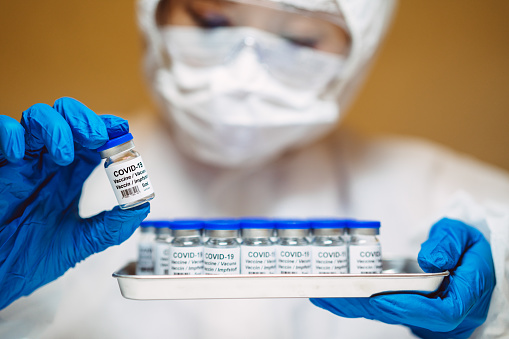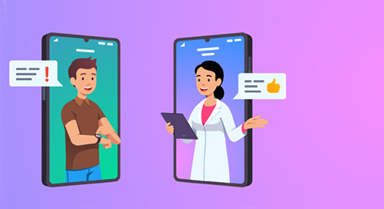What causes menopause?
Normal changes in your reproductive and hormone systems cause menopause. Your body starts to ovulate less often. During this time, your hormone levels go up and down unevenly (fluctuate). This causes changes in your periods and may cause other symptoms. Over time, you stop ovulating, and estrogen and progesterone levels drop. This causes your menstrual cycle to stop.
Certain lifestyle choices and medical treatments are linked to an earlier menopause. They include:
- Smoking.
- Radiation therapy to or removal of the pituitary gland.
- Chemotherapy.
- Radiation therapy or other treatment to the belly or pelvis that damages the ovaries so that they no longer function.
- Genetic and autoimmune diseases.
- Removal of both ovaries (oophorectomy). This causes sudden menopause.
- Low body fat
What happens to your body?
In your late 30s, your egg supply starts to decline and hormone production changes. You may notice a shorter menstrual cycle and new PMS symptoms. Starting sometime between your late 30s and your early 50s, your periods become irregular. This lasts for 2 to 8 years. During this time, your ovaries sometimes produce higher and sometimes lower amounts of hormones. This can lead to heavy menstrual bleeding.
About 6 to 12 months before your periods stop, your ovaries stop releasing eggs. Estrogen levels drop. This causes your periods to stop. After a year of no periods, you have reached menopause. During the next year or so, estrogen levels keep going down. This creates some health concerns, including:
- Higher risk of osteoporosis.
- Skin changes, including thinner, drier skin; thinner, weaker vaginal lining and urinary tract; and higher risk of vaginal and urinary tract infections.
- Higher risk of tooth loss and gum disease.
How is menopause diagnosed?
Your age, your history of menstrual periods, and your symptoms will tell your doctor if you are near or at menopause. You likely won't need to be tested to see if you have started perimenopause or reached menopause. But if your doctor suspects another medical condition, you may have some tests.
How is menopause treated?
You don't need treatment for menopause unless your symptoms bother you. The first step is to adopt and maintain a healthy lifestyle. It can help reduce symptoms. But if your symptoms are upsetting or uncomfortable, there are medicines that can help. Medicines may include hormonal birth control, hormone therapy, antidepressants, clonidine, or gabapentin.
How can you care for yourself?
A healthy lifestyle may help you manage menopause symptoms. It can also help lower your risk for heart disease, osteoporosis, and other long-term health problems.
- If you smoke, stop. Quitting smoking can reduce hot flashes and long-term health risks.
- Exercise regularly. It can help you manage your weight, keep your heart and bones strong, and lift your mood.
- Limit alcohol and caffeine. This may help manage menopause symptoms and reduce long-term health risks.
- Eat a heart-healthy diet. Choose foods like vegetables, fruits, nuts, beans, fish, or whole grains. Limit foods that have a lot of salt, fat, and sugar.
- If you are overweight, try to lose a little weight. In addition to overall health benefits, weight loss may reduce hot flashes.
- Pay attention to how the emotional side of menopause is affecting you. Have a support network, and seek help as needed.
- Make sure you get enough calcium and vitamin D. Eat foods that are rich in calcium. This can help lower your risk of osteoporosis. Ask your doctor if taking a supplement with calcium and vitamin D is right for you. The amount of calcium and vitamin D that you need to take depends on your age, your health, and how much calcium you get from the foods you eat.
- Improve bladder control with regular Kegel exercises.
- To manage hot flashes, keep your environment cool, dress in layers, and manage stress.
- If you're having problems with vaginal dryness, try these things:
- Use an over-the-counter lubricant before intercourse. Lubricants can be water-, silicone-, or oil-based. Ask your doctor about what kind may be a better option for you.
- Use a vaginal moisturizer, such as Replens. It can be used on a regular basis to help reduce vaginal dryness.
- Ask your doctor about using vaginal estrogen (cream, tablet, or ring).
- Try to manage stress. Breathing exercises, meditation, or yoga may help.
Menopause symptoms
Symptoms may include:
- Hot flashes.
- Trouble sleeping.
- Vaginal dryness.
Symptoms related to mood and thinking may also happen around the time of menopause. These include:
- Mood swings or feeling depressed or worried.
- Problems with remembering or thinking clearly.
You may have only a few mild symptoms. Or you might have severe symptoms that disrupt your sleep and daily life. Menopause caused by surgery, chemotherapy, or radiation therapy can cause symptoms to be more severe. A condition you already had, such as depression, anxiety, sleep problems, or irritability, can also make symptoms worse.
Symptoms tend to last or get worse the first year or more after menopause. Over time, hormones even out at low levels. Many symptoms improve or go away. But sometimes symptoms don't go away.
After menopause, you may get other symptoms. These include drying and thinning of the skin, and vaginal and urinary tract changes.
When should you seek help?
Call your doctor if you have:
- Menstrual periods that are unusually heavy, irregular, or prolonged (1½ to 2 times longer than normal).
- Bleeding between menstrual periods when periods have been regular.
- Renewed bleeding after having no periods for 6 months or more.
- Unexplained bleeding while you are taking hormones.
- Symptoms, such as insomnia, hot flashes, or mood swings, that aren't responding to home treatment and are interfering with your sleep or daily life.
- Vaginal pain or dryness that doesn't improve with home treatment, or you have signs of a urinary tract infection, such as pain or burning during urination or cloudy urine.
Exams and tests
Your age, your history of menstrual periods, and your symptoms will tell your doctor if you are near or at menopause. If you can, bring a calendar or journal of your periods and symptoms.
You likely won't need to be tested to see if you have started perimenopause or reached menopause. But if your doctor suspects another medical condition, you may have some tests. Tests may include a pregnancy test or hormone tests.
If you have heavy, irregular periods, your doctor may want to do tests to rule out a serious cause of the bleeding. Heavy bleeding may be a normal sign of perimenopause. But it can also be caused by infection, disease, or a pregnancy problem.
Menopause treatment overview
Menopause is a natural part of growing older. You don't need treatment for it unless your symptoms bother you. But if your symptoms are upsetting or uncomfortable, you don't have to suffer through them. There are treatments that can help.
The first step is to have a healthy lifestyle. It may help reduce symptoms and lower your risk of heart disease and other long-term problems related to aging.
All medicines for menopause symptoms have possible risks or side effects. Be sure to talk to your doctor about your possible health risks before you start a treatment.
Medicines may include:
- Hormonal birth control before menopause
- Hormone therapy (HT)
- Antidepressants
- Clonidine
- Gabapentin
Remember, you can still get pregnant until you reach menopause. To prevent an unplanned pregnancy, keep using birth control until you have not had a period for 1 full year.
Medicines
If your symptoms bother you, you may want to ask your doctor about prescription medicines. All medicines for menopause symptoms have possible risks or side effects. And there's a very small chance of serious health problems from taking hormone therapy. Be sure to talk to your doctor about your possible health risks before you start a treatment.
Hormone medicines include:
- Low-dose vaginal estrogen (cream, tablet, or ring). This reduces dryness and other tissue changes in and around the vagina.
- Estrogen and progestin hormone therapy (HT). These come in the form of a pill, patch, vaginal ring, gel, spray, or cream. They can be used to treat menopause symptoms.
- Estrogen therapy (ET). This is hormone therapy without progestin. It's most often used after surgery to remove the uterus (hysterectomy).
- Testosterone with estrogen. This is sometimes used for menopause symptoms that don't improve with estrogen therapy.
Non-hormone medicines include:
- Antidepressants. These can reduce how many hot flashes you have. They can also make them less severe. And they may help with irritability, depression, and moodiness.
- Clonidine. This is medicine for high blood pressure. It can reduce the number of hot flashes and how severe they are. It may cause side effects related to low blood pressure.
- Gabapentin (Neurontin). This is an antiseizure medicine. It can reduce the number of hot flashes and how severe they are. Possible side effects include sleepiness, dizziness, and swelling.
- Ospemifene (Osphena). This is used to reduce vaginal changes that can make sex painful.
Alternative treatments
There are many non-medicine treatments to relieve menopause symptoms.
- Cognitive-behavioral therapy is a type of counseling. It focuses on changing certain thoughts and behavior patterns. It may help you feel less bothered by hot flashes.
- Hypnosis is a state of focused concentration. With it, you become less aware of what is around you. It may reduce the number of hot flashes and make them less severe.
- Mind and body relaxation, such as breathing exercises. This may help with hot flashes and mood symptoms.
- Yoga and biofeedback can help you reduce stress.
- Black cohosh (such as Remifemin) may help relieve symptoms. But the research on black cohosh has had mixed results.
- Soy may improve symptoms. But studies have shown mixed results.
Remember that dietary supplements aren't regulated like medicines, and they may have risks. If you choose to take them, tell your doctor what you take.
Learn more
- Menopause: Should I Use Hormone Therapy (HT)?
- Hysterectomy and Oophorectomy: Should I Use Estrogen Therapy (ET)?
What’s next?
After menopause, women enter post menopause. Many chose to view this stage of their life as an opportunity to set new goals and tackle new challenges. But postmenopausal women are more vulnerable to heart disease and osteoporosis During this time, it is important to continue to eat a healthy diet, be active, and make sure you get enough calcium for optimal bone health. Consult your physician to determine what changes you can make to optimize a healthy and active lifestyle.
Learn more about menopause.
1. Shifren, J.L., Gass, M.L.S., for the NAMS Recommendations for Clinical Care of Midlife Women Working Group. (2014). The North American Menopause Society recommendations for clinical care of midlife women - PubMed (nih.gov); 21(10): 1038–1062.
Offered by Cigna Health and Life Insurance Company or its affiliates.
This information is for educational purposes only. It's not medical advice. Always consult with your health care provider for appropriate examinations, treatment and health care recommendations.
This article serves only as a reference and is intended for informational purposes only. Nothing in this article constitutes legal, tax, financial planning, health or medical advice including diagnosis or treatment. Always seek the advice of your physician or other qualified health provider with any questions you may have regarding a medical condition. References to third-party organizations or companies, and/or their products, processes or services, do not constitute an endorsement or warranty thereof. Products and services may not be available in all jurisdictions and are expressly excluded where prohibited by applicable law. All group insurance policies and health benefit plans contain exclusions and limitations. For costs and details of coverage, contact a Cigna Healthcare representative.
Product availability may vary by location and plan type and is subject to change. Products may not be available in all jurisdictions and are excluded where prohibited by law. All group health insurance policies and health benefit plans contain exclusions and limitations. For costs and details of coverage, review your plan documents or contact a Cigna Healthcare representative. Cigna Healthcare products and services are provided exclusively by or through operating subsidiaries of The Cigna Group, including Cigna Health and Life Insurance Company, Cigna Life Insurance Company of Canada, Cigna Global Insurance Company Limited, Evernorth Care Solutions, Inc., and Evernorth Behavioral Health, Inc. The Cigna Healthcare name, logo, and other Cigna marks are owned by Cigna Intellectual Property, Inc., licensed for use by The Cigna Group and its operating subsidiaries. “Cigna Healthcare” refers to The Cigna Group and/or its subsidiaries and affiliates. The information on this site is only a general description of benefits. All insurance policies and group benefit plans contain exclusions and limitations.
Cigna Healthcare products and services are provided exclusively by or through operating subsidiaries of The Cigna Group, including Cigna Health and Life Insurance Company, Life Insurance Company of North America, Cigna Global Insurance Company Limited, Evernorth Care Solutions, Inc., Evernorth Behavioral Health, Inc., or through their affiliates and contracted companies.








